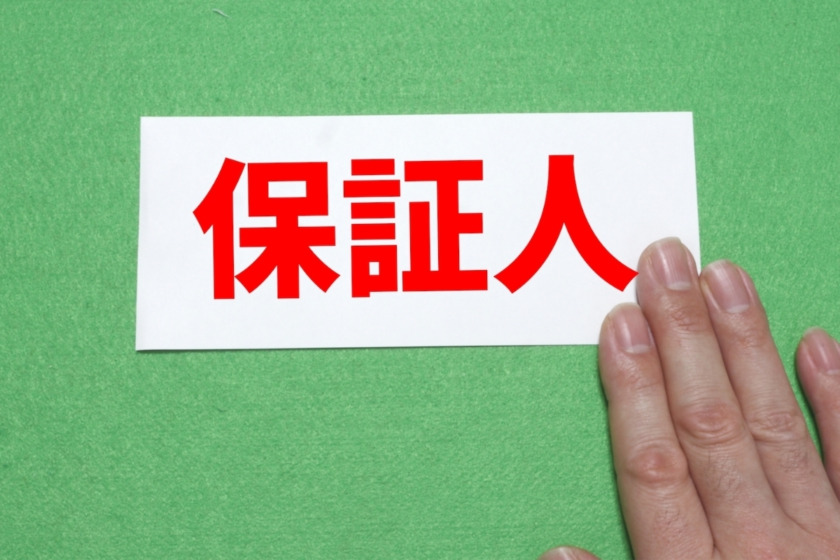Moving to Japan brings exciting opportunities, but navigating its unique rental landscape can present unexpected challenges. Among the most common questions for foreign residents is, “What exactly is a Japanese guarantor, and do I need one?” The guarantor system in Japan is a fundamental aspect of securing an apartment, often proving to be a source of confusion and stress for newcomers. This comprehensive guide aims to simplify this complex requirement, offering practical foreigner rent tips and clarifying the role of a Japanese rental guarantor.
What exactly is a Japanese guarantor (Hoshonin)?

At the heart of Japan’s rental market lies the “hoshonin” (保証人) or Japanese guarantor system. This requirement is deeply ingrained in the country’s housing culture, serving as a crucial safety net for landlords. Essentially, a guarantor is an individual or entity that assumes financial responsibility for a tenant, promising to cover rent payments or any damages should the tenant default on their obligations. Understanding this concept is the first step towards a smooth rental experience in Japan.
- The traditional hoshonin: Personal guarantors:
Historically, a “hoshonin” was almost exclusively a personal guarantor – typically a family member, close friend, or employer with a stable income and a strong reputation in Japan. This person’s role extends beyond mere financial backing; they also serve as a character reference, assuring the landlord of the tenant’s reliability and respect for community rules. For foreign residents, finding a personal guarantor can be exceptionally challenging due to cultural differences, lack of a pre-existing network, or simply the significant responsibility involved.
- The rise of guarantor companies (Hosho Gaisha):
To address the difficulty of finding a personal guarantor — an issue not only for foreigners but also for Japanese nationals — the guarantor system has gradually evolved, leading to the widespread emergence of professional guarantor companies (保証会社 – hosho gaisha). This has become the standard option for foreigners, helping to simplify the rental process and offering peace of mind for both landlords and tenants. Many of these companies also provide multilingual support, reducing language barriers during contract signing and fulfilling legal obligations.
Why do landlords require a Japanese guarantor?

The requirement for a Japanese guarantor is not arbitrary; it’s a deeply rooted practice that offers landlords crucial layers of protection in the Japanese rental market. From a property owner’s perspective, this system is paramount for ensuring a secure and predictable tenancy. Understanding these underlying reasons can help foreign tenants approach the process with greater clarity and respect for local customs.
- Mitigating financial risks:
Primarily, the guarantor serves as a financial safeguard. While most tenants pay rent promptly, there’s always a risk of default due to unforeseen circumstances like job loss, illness, or simply a tenant absconding. In such cases, the landlord can turn to the guarantor for immediate payment of overdue rent, utility bills, or even costs associated with property damage beyond normal wear and tear.
This system significantly reduces the financial burden and legal complexities for landlords, offering them peace of mind. Without this safety net, many property owners would be hesitant to rent out their valuable assets, particularly to individuals without a long-standing credit history in Japan.
- Ensuring tenant reliability and responsibility:
Beyond financial security, the guarantor system in Japan also functions as a mechanism for vetting a tenant’s character and ensuring their adherence to community rules. A personal guarantor, often a reputable figure, implicitly vouches for the tenant’s reliability, stability, and commitment to being a good neighbor. Even with guarantor companies, the application process involves a screening to assess a tenant’s perceived responsibility.
This dual layer of security aims to foster a respectful living environment within apartment buildings. Landlords operate on a high degree of trust and respect in their communities, and the guarantor system helps maintain this by ensuring tenants are committed to fulfilling both their financial and social obligations. This structured approach helps ensure a smoother experience for all parties involved, including fellow residents.
The different types of guarantors available to foreigners
For foreigners navigating the guarantor system in Japan, understanding the available options is key to a successful apartment search. While a personal guarantor might seem ideal, professional guarantor companies are usually the most viable and straightforward solution.
- Personal guarantors: Challenges and solutions:
A personal guarantor (“rentai hosho-nin”) is typically a financially stable Japanese national (or long-term resident) willing to assume significant legal and financial responsibility. For most foreign newcomers, finding such a person is incredibly difficult due to the high level of trust and potential liability involved. While it can reduce initial rental costs if found, this is a rare scenario for most.
- Comprehensive guide to guarantor companies (Hosho Gaisha): Guarantor companies are the lifeline for most foreigners, making the rental process significantly simpler and more accessible. They act as your guarantor for a fee.
- Application rrocess: Applied through your real estate agent, they assess your financial stability and background.
- Fees: Typically, an initial fee of 0.5 to 1 month’s rent, plus annual renewal fees (around 10,000-20,000 JPY or 10% of rent).
- Benefits for foreigners: They bridge the gap of not having a personal guarantor, offer multilingual support, and streamline landlord approval. Their involvement fosters security and trust, making the experience smooth for all parties.
- Employer-Provided guarantors (Less common but possible):
In rare cases, some larger companies might offer to act as a corporate guarantor for employees, often as part of a relocation package. This can eliminate the need for other guarantor fees, but it’s not a widespread option and should be confirmed with your employer. Your real estate agent can help you navigate this if it applies.
Navigating the guarantor application process
Once you’ve identified a suitable guarantor (most likely a guarantor company), navigating their application process is critical. While your real estate agent provides substantial support throughout, understanding the stages involved can help you prepare thoroughly and ensure a smooth journey towards securing your apartment.

- Required documents and information: Guarantor companies require comprehensive documentation to assess your financial reliability. Be prepared to provide:
- Personal identification: Passport and Residence Card.
- Proof of income: Recent salary slips (3-6 months), employment certificate, or bank statements showing consistent deposits. Tax certificates for self-employed.
- Employer information: Company name, address, and contact.
- Emergency contact: A non-financial contact in Japan.
- Bank account details: For future rent payments. Providing accurate and complete information will simply expedite the process and demonstrate your responsibility.
- The screening process explained: After submission, the guarantor company conducts screening:
- Document review: Verification of submitted papers.
- Phone calls: To your employer for verification, and potentially to your emergency contact or you directly. If Japanese is a challenge, ensure your agent provides multilingual support for these calls.
- Background checks: Assessment of your overall profile for risk. Screening typically takes a few business days, but patience is key.
- What happens after approval (or rejection):
- Approval: A guarantee certificate is issued, strengthening your apartment application. Landlords widely trust these companies.
- Rejection: Less common if income criteria are met, but can occur for undisclosed reasons. If rejected, your real estate agent’s responsibility is to immediately find alternative guarantor companies or properties. A good agent will guide you through this, offering solutions to ensure your housing search remains stress-free.
Common challenges Foreigners Face with Guarantors
Even with the option of guarantor companies, foreign residents sometimes encounter specific hurdles when navigating the Japanese guarantor system. These challenges, often stemming from communication gaps or differing expectations, can add unnecessary stress to the apartment search. Being aware of them in advance can help you prepare for a smoother experience.
- Language barriers and cultural misunderstandings:
While many guarantor companies are becoming more international-friendly, communication can still be a significant obstacle. Forms and contracts are almost exclusively in Japanese, and phone calls for verification or clarification may not always be available in English or other languages. Misunderstanding a clause in a contract or struggling to articulate your situation can lead to delays or even rejection. Moreover, subtle cultural cues regarding financial responsibility or personal relationships might not be immediately apparent, requiring careful guidance.
- Finding a personal guarantor in Japan:
As highlighted earlier, securing a personal Japanese guarantor for rent is exceptionally difficult for most foreigners. It places a huge financial and legal responsibility on the individual, which few are willing to undertake for someone they don’t know intimately or who isn’t a direct family member. Even if you have a Japanese friend, asking them to be your guarantor could strain the relationship due to the immense trust and potential liability involved. This reality often steers foreigners towards guarantor companies, which, despite their fees, offer a more reliable and stress-free path.
- Understanding guarantor company contracts:
While guarantor companies simplify the process, their contracts can still be complex. It’s crucial to understand the exact terms, including fees (initial and annual), scope of responsibility, and what happens in case of late payments. Without proper multilingual support, tenants might unknowingly agree to terms that could lead to unexpected charges or issues down the line. Always ensure you have a clear explanation of these documents to act safely and with full awareness of your responsibilities.
How Momo Estate simplifies the guarantor process for you

At Momo Estate, we understand that the guarantor system in Japan can be a major source of apprehension for foreign residents. Our mission is to make home-finding simple, clear, and human for non-Japanese residents. We leverage our expertise and dedication to provide unparalleled support, ensuring your journey through the Japanese rental guarantor process is truly stress-free and seamless.
- Expert multilingual support and guidance:
Our team comprises native speakers of English, Japanese, and Vietnamese, offering invaluable multilingual support at every turn. We don’t just translate documents; we provide comprehensive explanations of complex terms, ensuring you fully understand every aspect of your guarantor application and contract. This means clarity and respect are at the forefront, bridging cultural and linguistic gaps that often cause issues. We guide you through conversations with guarantor companies, explaining expectations and helping you articulate your situation precisely.
- Connecting you with trusted guarantor companies:
Building trust is central to our values. Over years of experience, we’ve cultivated strong relationships with reputable and foreigner-friendly guarantor companies. We know which companies have policies and processes that are most accommodating to international clients, increasing your chances of approval. This curated network means you won’t waste time applying to companies that are unlikely to accept foreign tenants, making your search for a high-end apartment or any rental property more efficient and safely managed.
- Streamlining your application for a smooth experience:
From compiling necessary documents to filling out application forms, our team provides meticulous help and oversight. We review your paperwork to ensure accuracy and completeness, reducing the risk of rejections due to minor errors. We simply complex procedures, pre-empting potential issues and proactively communicating with guarantor companies on your behalf. Our hands-on approach aims to make your guarantor application a smooth experience, allowing you to focus on your exciting move to Japan. We take the responsibility to ensure your application is presented in the best possible light.
- Address: #301, Lions Mansion Otsuka Kakuman 2-3-12 Kita-Otsuka, Toshima-ku, Tokyo
- Phone: 03-6820-6203
- Website: momoestate.jp
- Facebook: MOMO Estate
- Email: info@momoestate.jp
- Open: Monday–Saturday, 10:00–18:00
Understanding the Japanese guarantor system is indeed essential for any foreigner looking to secure a rental property in Japan. While the concept of a personal guarantor can be challenging, the widespread availability of reliable guarantor companies offers a practical and stress-free solution. This system, integral to the Japanese rental market, ensures trust and responsibility for both landlords and tenants. At Momo Estate, we are dedicated to providing the multilingual support and expert guide needed to simply navigate this process, making your home-finding experience smooth and safely managed. Let us help you find your ideal high-end apartment with confidence.




